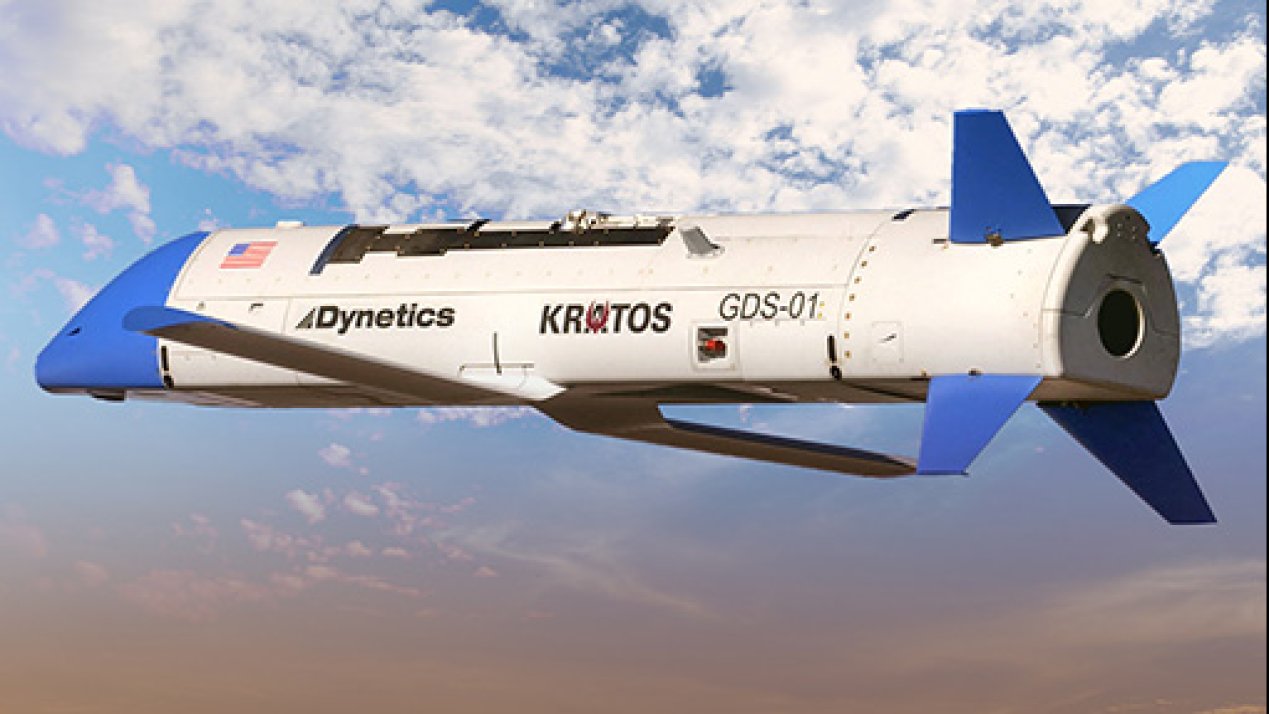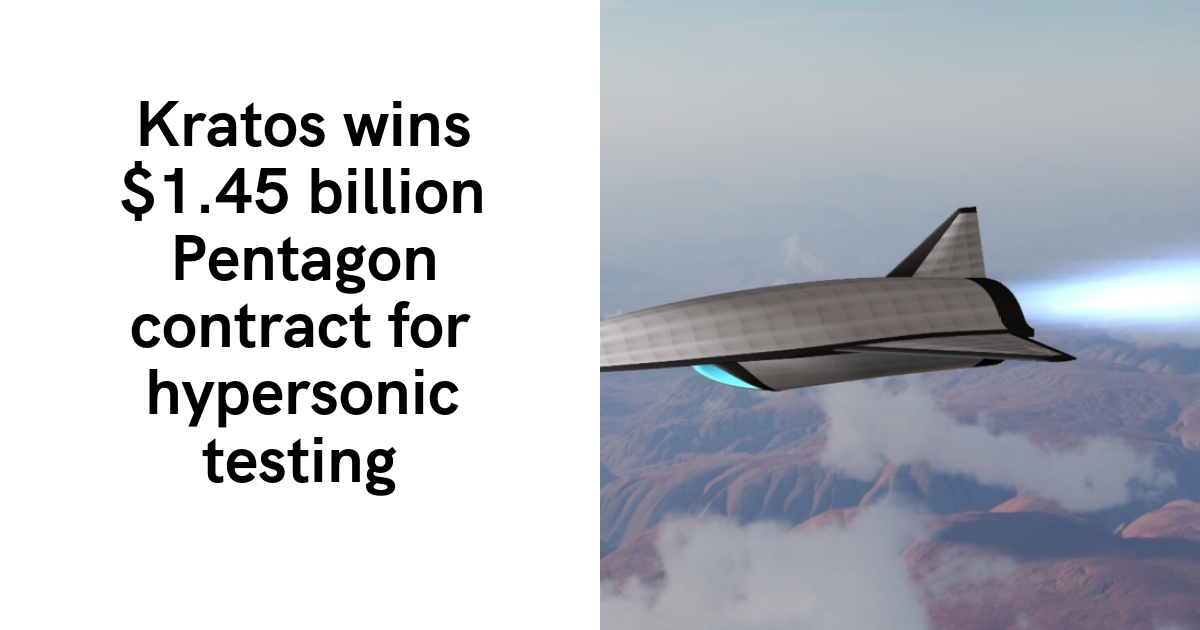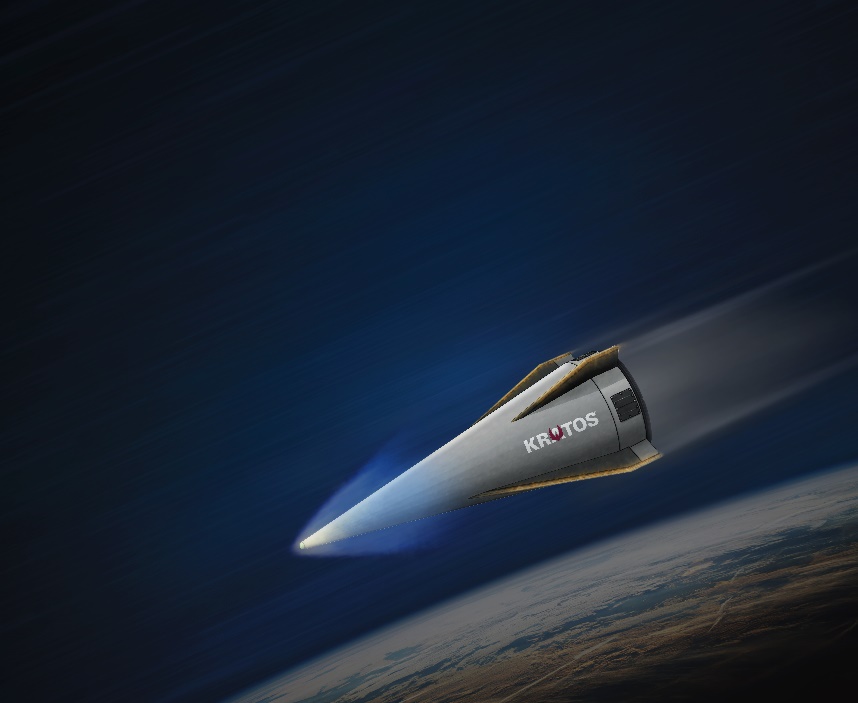
Kratos Lands US$1.4 Billion Pentagon Deal for Hypersonic Tests
The Pentagon has selected Kratos to lead the second phase of its multi-service Advanced Capability Hypersonic Test Bed (MACH-TB) program, giving the defense company a contract valued at up to $1.45 billion. This five-year agreement aims to enhance hypersonic flight testing, aiming to fill important gaps in the U.S. Department of Defense’s (DoD) hypersonic development efforts.
MACH-TB 2.0: Expanding on Previous Work
Starting in 2022, the MACH-TB program aims to enhance the testing infrastructure for hypersonic technology. The first phase, which was managed by Leidos, focused on the design and demonstration of a testbed. In the second phase, the emphasis will be on increasing the number of hypersonic flight tests.

Kratos noted in its statement from January 6 that “MACH-TB 2.0 will create a cost-effective link between ground hypersonic tests and full flight tests. This will help minimize overall development risks and durations, allowing quicker integration of new hypersonic technologies for the military.”
Kratos’ Notable Progress in Hypersonic Technology
This contract is the largest ever for Kratos and comes after important advancements in hypersonic tech. The company’s Erinyes vehicle achieved hypersonic speed during its first flight in June 2024 in a test conducted by the Missile Defence Agency.
Remarkably, Kratos developed the Erinyes in just three years for less than $15 million, proving it can be a budget-friendly option for hypersonic testing.
In October, Kratos tested its Zeus solid rocket motors, paving the way for possible mass production this year. These accomplishments highlight Kratos’ ability to deliver innovative strategies quickly and within budget, establishing it as a leader in hypersonic system development.
MACH-TB’s Importance for Hypersonic Progress
The MACH-TB program, managed by the Pentagon’s Test Resource Management Center, along with the Naval Surface Warfare Center’s Crane Division, is crucial for pushing forward hypersonic technologies.
The program includes a flying testbed that helps validate hypersonic subsystems, advanced materials, and new technologies in real flight settings. This resource fills a significant gap in U.S. hypersonic development, as components typically lack adequate testing prior to full system evaluations.
Kratos has been involved as a subcontractor in MACH-TB 1.0, providing support for over 25 test flights. In MACH-TB 2.0, the company plays a main role, collaborating with Leidos, Rocket Lab, and Purdue University. Their goal is to transform hypersonic testing by offering a scalable and effective solution for DoD requirements.
Global Landscape: Hypersonic Competition Grows
The U.S. has ramped up its hypersonic weapon efforts in reaction to advancements from China and Russia. Hypersonic systems, which can travel and maneuver at speeds beyond Mach 5, are a significant strategic advantage in modern warfare.
In November, Russia showcased its hypersonic capabilities by launching an intermediate-range ballistic missile during its ongoing conflict in Ukraine.
The MACH-TB program demonstrates the U.S. military’s goal of maintaining an edge in this crucial area. By encouraging innovation and enhancing testing capabilities, this initiative seeks to ensure that American hypersonic systems remain at the forefront and ready for combat.
Advantages of MACH-TB 2.0
1. Risk Reduction:
Having more hypersonic test flights with MACH-TB 2.0 reduces the risks associated with testing the entire system, allowing developers to find and fix issues sooner.

2. Cost Efficiency:
By focusing on keeping costs down, the program makes advanced hypersonic technologies more accessible to the DoD without overspending budgets. The Erinyes vehicle, for example, shows cost-effective new ideas.
3. Faster Timelines:
With an improved testing method, MACH-TB 2.0 cuts down the time needed to develop hypersonic systems so the U.S. can use new technologies quickly.
4. Joint Innovation:
The program unites top groups like Leidos, Rocket Lab, and Purdue University, encouraging a team-based strategy to tackle tough technical difficulties.
The Future for Kratos and MACH-TB
Kratos’ bigger role in MACH-TB 2.0 highlights its rising importance in hypersonic technology. The company’s creative solutions and past success make it a key player in the U.S. military’s goal to lead in hypersonic combat.
As MACH-TB 2.0 moves forward, the Pentagon’s support for advanced testing facilities and teamwork will likely bring major progress in hypersonic tech. These actions improve national security and reinforce the U.S.’s intent to keep its tech superiority in a more competitive world.









